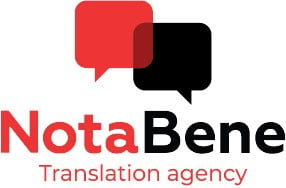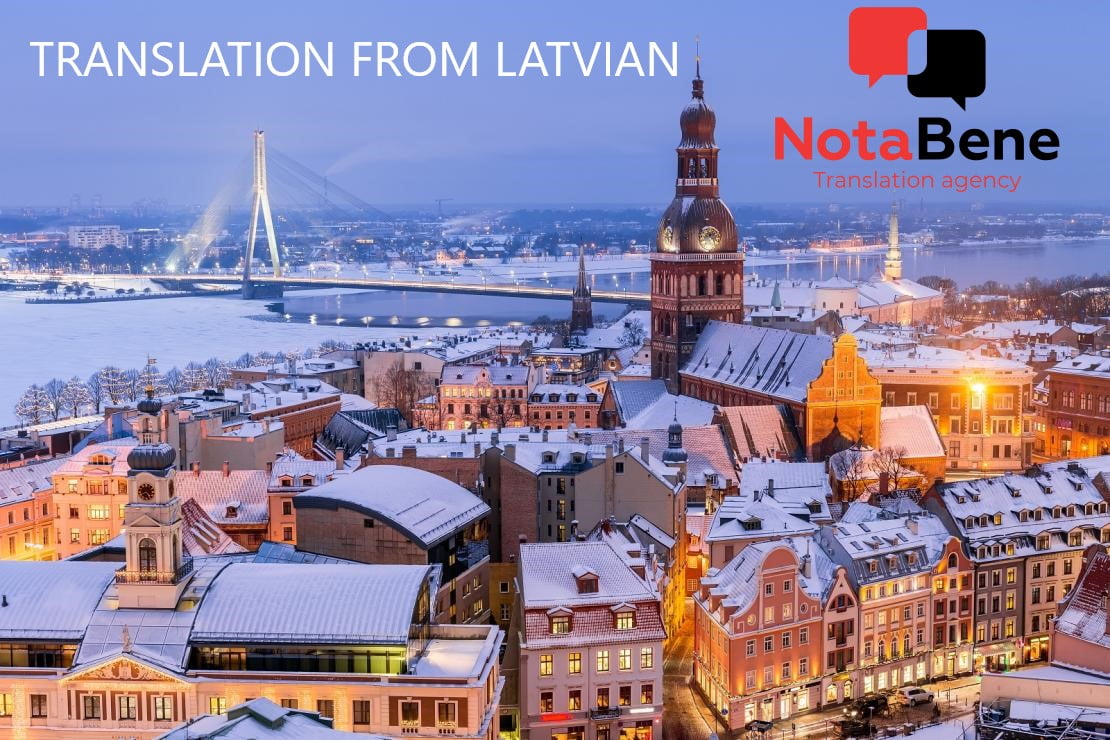Order translation from Latvian or into Latvian at NotaBene Agency in Poland!
NotaBene Translation Agency is an experienced supplier of translation from Latvian into Polish and vice versa for any documents or texts.
What types of texts does NotaBene Translation Agency work with?
– Technical translation from and into Latvian— we translate any texts in electronics, aviation and shipbuilding, agriculture, industry, oil and chemistry, etc. For this purpose, we pick translators who understand the specific nature of a given industry.
– Translations for the IT sector from and into Latvian for the localization of applications, games, software and websites.
– Medical translation from and into Latvian — books, manuals, articles in specialized printed and online publications, clinical records, correspondence with medical institutions, transcriptions and translations of test results, instructions for medicines and many other types of texts. This kind of translation requires flawless knowledge of medical terminology and focus on detail to rule out ambiguity, because the result can affect the health or life of many people.
– Legal translation from Latvian: statutes, registration deeds, articles of incorporation, contracts, powers of attorney, court records and many other similar documents.
– Financial translation from Latvian includes the translation of balance sheets, tax returns, payment invoices, waybills, tender documents, etc.
– Literary or fiction translation from Latvian of fiction, marketing and advertising materials. Unlike the previous types of translation, in this case there is more room for a translator’s creativity, because there is no need for “word for word” translation. The most important thing is that the translated material produces the same impact as the original, while an excellent translation may even make it better.
Please note that the translation mentioned is certified by an agency seal only. If you need sworn translation, kindly notify your manager in advance. Sworn translation is possible only for certain languages.
How to have a translation from Latvian into English, Polish, Russian, Belarusian or Ukrainian?
First of all, you need to order it. To do so, send your source text and specify your requirements for the translation from Latvian. A customer service specialist at the Nota Bene Translation Agency will prepare a ToR based on the specific features of the order. If the project involves more than one job, a unique glossary is created to ensure the consistency and proper use of terminology.
An entire team of several professionals normally works on a job: a translator, proofreader, editor, quality controller, layout designer and manager who will be available during working hours. In order to rule out human errors, the translation agency uses modern services to check punctuation, idioms, numerical expressions, and formulas. The material is also reviewed by the chief editor.
Confidentiality of translated data is ensured by a special NDA, whenever a customer wishes to have one. Documents can be delivered to any country.
We very rarely apply additional fees for “urgency” or “specialized subjects”, so you can be sure that the price will not rise when the project is delivered. It is true that in rare cases, such as “we need to have it yesterday” instances, and when a customer is willing to pay a higher rate for the team to work outside normal working hours, at night or on weekends, the fee might be increased, but this is always negotiated with the customer in advance.
Exciting facts about the Latvian language
- In Latvian there are many words similar to Polish, such as man — cilvēks, people — ļaudis.
- It is believed that Latvian is best understood by those who speak German — it is based on Germanic language roots.
- The Latvian language is very short! A whole sentence can be replaced by a few short words (My name is Mirek — es mu Mirek), or for example, the use of case changes the word without prepositions (they differ only in the presence of vowels.
- The accent in Latvian words usually falls on the first syllable, so it is difficult to pronounce words correctly – especially when there are long vowels in the second/third syllable.
- The order of words in a sentence depends on which word carries the most meaning, and the inflection of words in word combinations also depends on this (especially if it consists of two nouns). For example, “fish chops” sounds like this – “zivjukotletes” (literally translated “chops belonging to fish”, not “chops from fish”).
We have been in business for over 20 years and during that time we have learned to work well. Trust us with your project and get a great result at a reasonable price!








